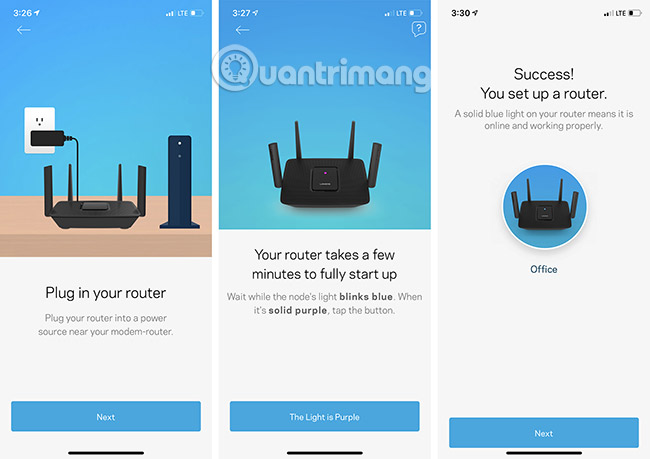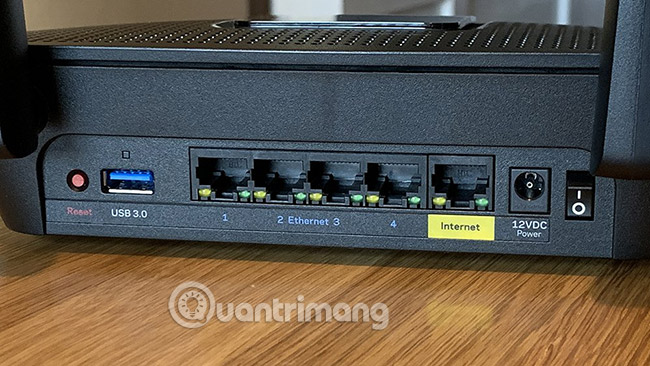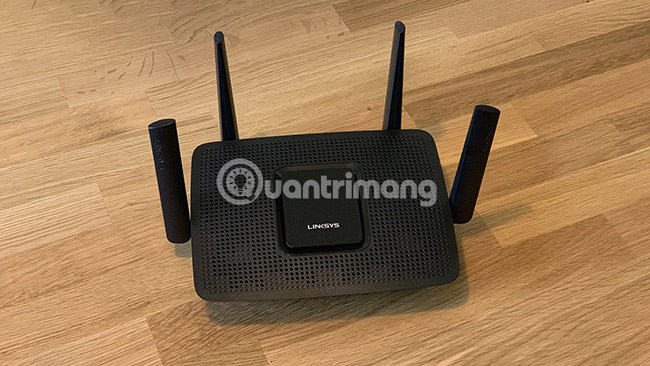Linksys MR8300 - Mesh Mesh Wi-Fi for advanced users
There are many excellent Wi-Fi mesh systems on the market, but many of them offer only basic features. The new Linksys MR8300 Wi-Fi mesh router combines these simple features with a traditional router experience.
Many people prefer Eero because the mesh Wi-Fi system is easy to install and use. However, this system is too sketchy and lacks a lot of advanced features. If you like, you can still use an existing router and use Eero in the bridge mode, but there will be two interfaces to deal with and the simplicity of the Eero experience is gone.
Of course, the basic interface is not really a problem for most people because it can get used to, but many people just like easy-to-use products and want to access advanced features, as well as A network can handle everything.
Linksys MR8300 Wi-Fi mesh router has three Wi-Fi standard 802.11ac bands (one 2.4GHz band, two 5 GHz bands), supports MU-MIMO and 716MHz quad-core processor, hard to feature can be found in other Wi-Fi mesh routers.
Review Linksys MR8300 router
- Application for setting up
- The combination of 'neoclassical charm' of features
- Signals can cover the entire house
There is application to set up
The Linksys MR8300 router setup is the same as how you set up any other Wi-Fi mesh system. You only need to install the Linksys MR8300 application that comes with your phone to configure the router.

This application makes the setup process easier, including all the steps, from plugging the router to connecting all different cables. You may already know how to install (especially if you already own this type of product), but anyway, it is useful for beginners.
After the router is set up, users can use the application to set up any Linksys Velop unit to bring the Wi-Fi mesh power to MR8300.
The combination of 'neoclassical charm' of features
Once everything works, users can start using it now and manage everything from the Linksys app on the phone, or they can use the traditional router control panel in a web browser by navigating to 192.168. .1.1.

The MR8300 has many of the same features as other Wi-Fi mesh systems, such as guest Wi-Fi access, parental control features, integrated speed testing, port forwarding (port forwarding), etc. Besides The MR8300 also comes with a number of advanced features, including device priority, MAC address mirroring, MAC address filtering, advanced DHCP configuration and more.

Of course, this router also has some drawbacks. It does not fully possess all the amazing features that technology enthusiasts want to see in such a super advanced router (eg without rules and advanced firewall configuration), but certainly MR8300 is better than most conventional Wi-Fi mesh systems.
Second, it requires the application to set up like most other Wi-Fi mesh systems, and even if the user configures and manages the router via a web browser, Linksys still encourages the application. This is not a big deal and unlike the experience with Eero or Google Wi-Fi, but it is worth noting if you do not like using a router setup application.
Signals can cover the entire house
Now, a single router that provides Wi-Fi signals for the entire house is not necessarily a Wi-Fi mesh. That's why MR8300 is fully compatible with Linksys' existing Velop mesh Wi-Fi system.
This means that it is best to use the MR8300 as the main router and then buy one, two, three or more Velop units to put around the house, so that Wi-Fi signals can reach every corner of the house. The way quickly and the Wi-Fi signal strength is also more stable. The Linksys application makes it easy to add individual Velop units to existing settings and connect them directly to MR8300.

Even so, the current broadcast range of MR8300 is also quite good. Users can get good signals and fast speeds in the lower floors, thanks to 4 antennas that can comfortably navigate.
The garage is often where no good Wi-Fi signal is received, and unfortunately, MR8300 still can't fix this drawback. However, just adding a Velop unit and putting it downstairs can fix that problem right away.
And that is a great advantage of MR8300 when used with Velop system. The price of the MR8300 router is $ 179 (4,150,000 VND) and Velop unit usually costs $ 350 (VND 8,115,000) / pair. Therefore, it will cost about $ 530 (VND 12,200,000) to set up the whole house. While Eero only costs $ 400 (9,274,000 VND) and Google Wi-Fi costs $ 300 (6,955,000 VND).
This is definitely a pretty high price, but if you want both the best (a easy-to-use Wi-Fi mesh system and a traditional router experience), as well as a powerful network connection can handle everything. This is definitely a worth consideration.
See more:
- 10 best mesh Wi-Fi network systems
- Build a wireless network with a broadband router
- Access the home router with admin rights